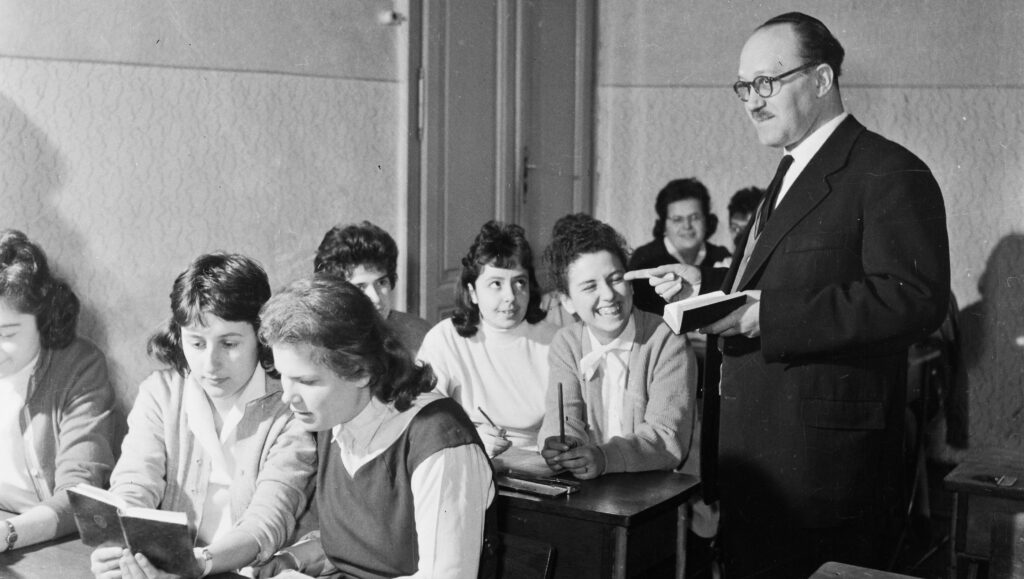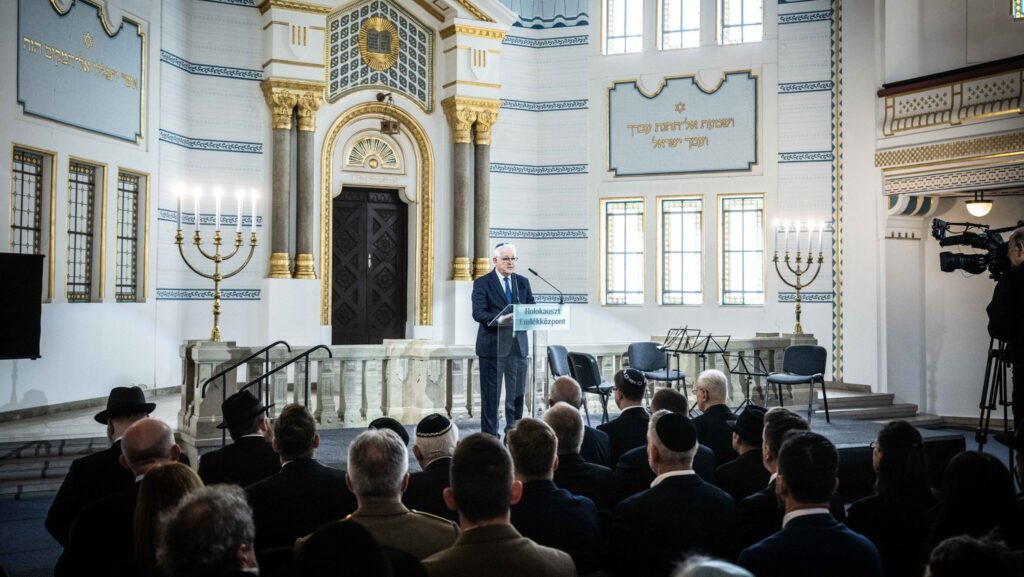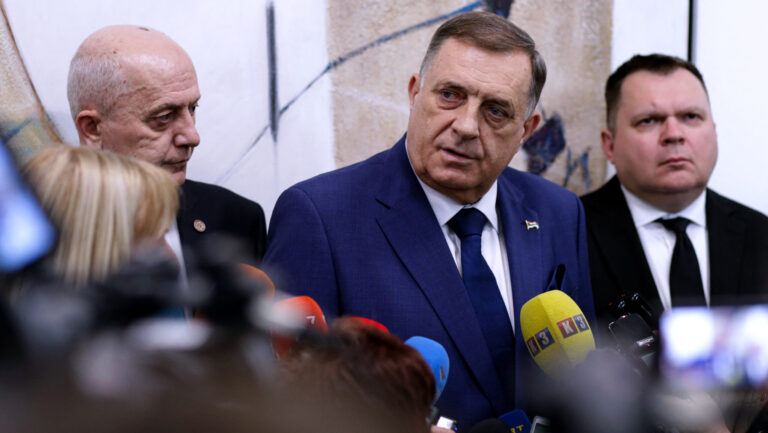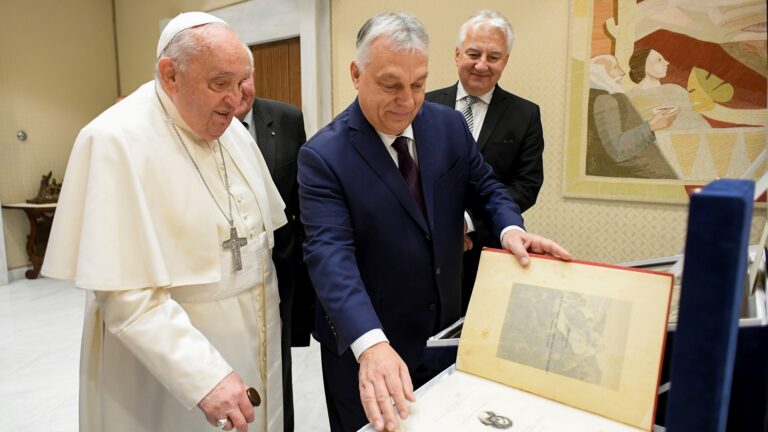Days after violent demonstrations, the most intense Hamas bombing and condemning rhetoric by public figures, Israel might conclude its more than two-year-long political deadlock. The economic, diplomatic, and social achievements of Benjamin Netanyahu, the longest serving Israeli Prime Minister, are clouded unduly, which also provides some lessons for us.
Israel has indeed been in distress. On 23 March, the country held its fourth election in two years. Certain Israeli cities have recently been on fire due to pogroms, and the over 3,100 rockets launched from Gaza for eleven days, which also was, according to the Israeli Defence Force (IDF), the most intense rocket fire suffered by Israel in its history. Fierce antipathy from global public opinion questions Israel’s right to self-defence. Although the ‘change coalition’ is setting the scene to replace Israel’s longest-serving prime minister, Benjamin Netanyahu, and Isaac Herzog has recently been elected as Israel’s ‘second generation president’, the political struggle is not overdue to the ominous divisions both in the government that might take shape and within the Israeli society. Celebrations of Jerusalem Day, which commemorates the reunification of Jerusalem, then Shavuot, the anniversary of the Lord’s gift of the Torah to the Children of Israel, and commemoration of the anniversary of the country’s declaration of independence, all took place recently amid these troubling circumstances.
Political stalemate
The governing right-wing Likud Party (National Liberal Movement) led by current Prime Minister Benjamin Netanyahu, received the highest number of votes two months ago: it won thirty seats, and thus has a relative majority in the Knesset of 120 members. The second most votes were cast for Netanyahu’s old nemesis, ‘social justice warrior’ Yair Lapid and his Yesh Atid (There is a Future) Party which gained seventeen seats. In order to form a governing coalition, sixty-one Knesset seats are required. According to Israeli law, first the leader of the party receiving the most votes gets a chance to form a coalition within twenty-eight days. Thus President Reuven Rivlin called upon Netanyahu to gather enough allies by 5 May. He was unable to do so, hence it has been Lapid’s turn to try to assemble a governing majority. Lapid’s ‘change coalition’, including parties from the radical left to the right, moreover, the Islamist party Ra’am (United Arab List), has apparently taken shape approximately half an hour before the deadline by reaching an agreement with ‘kingmaker’ Naftali Bennett, leader of right-wing Yamina (To the Right) Party.
Netanyahu was manoeuvring against strong headwinds in a political climate
where all left-wing and most right-wing politicians have been working to overthrow him. The Prime Minister’s popularity as a coalition partner decreased even among those right-wing parties whom he counted on around the elections. Religious Zionist party leader Besalel Smotrich is a right-wing politician (for some, extremely so): he takes a firm stand in support of Israeli settlements in Judea and Samaria (the West Bank) and would restore Torah-based jurisdiction in Israel. Nevertheless, even he has claimed that ‘the time might come to replace Netanyahu’ since he was dissatisfied with the Prime Minister’s reactions to the recent riots in Jerusalem, in which he warned both Jews and Arabs to refrain from violence. Moreover, he would have not supported a coalition that counts on the Arab- Israeli Ra’am Party, whose partnership had actually been on the table for both Netanyahu and Yair Lapid.
Netanyahu tried to persuade the right-wing party leaders, such as nationalist Naftali ‘Bennett’ and deserter Likudist Gideon Sa’ar leading the recently established New Hope Party, that their true political goals could be achieved under his leadership. In fact, they had been strong allies of the Prime Minister, Bennet even serving in several Netanyahu governments, e.g. as Minister of Education and Minister of Defence. The Likud leader feels betrayed by his peers, and no wonder: Bennet has played a double game to maximize his chances both inside Netanyahu’s right-wing block and as part of the ‘national unity government’ with left-wing parties led by progressive Yair Lapid. Moreover, ex-Likud member Gideon Sa’ar employed spin doctors from the American Lincoln Project before the elections. This initiative gathers Republicans who campaigned against Trump more fiercely than most Democrats in the US presidential elections campaign. Sa’ar decided to import their techniques in Israel and use them against Netanyahu.
Bennet has been promised rotational premiership in Lapid’s distorted coalition. For the sake of clarity, Lapid’s lately announced coalition include both Islamist Arab parties and pro-settler Jewish nationalist forces whose goal is to annex the Jordan Valley in Judea and Samaria, but also that of the religious Zionists, progressives and old socialists who are committed to (the so far unsuccessful) negotiations with the Palestinians and to the two-state solution. From personal ambition, both Bennet and Sa’ar turned their back on Netanyahu, the most efficient promoter of their shared values. The coalition with Yair Lapid with whom they share nothing but their envy or antipathy towards Netanyahu, is likely to be a short-lived, senseless, and irresponsible act of political opportunism.
Netanyahu’s offer for a ‘premiership rotation bill’ in a coalition with Likud did not convince his competitors, since no one really believed that he would effectively step back when not sitting in the prime minister’s seat. The current government formed after the elections last March was built on a similar deal between Netanyahu and former Chief of General Staff Benny Gantz, who is leading the formally centrist, but in reality left-leaning Kahol Lavan (Blue and White), and seemingly Netanyahu has done everything to avoid being forced to give up his seat this November. He even offered Bennett the chance to start the new government’s term as its head, but to no avail; Bennet took the same offer from Yair Lapid.
All in all, Netanyahu ran out of time.
The formation of Lapid’s opportunistic ‘change coalition’ has been announced lately, and according to Israeli law, needs to be accepted in the Knesset by a vote of confidence. Though they emphasized that they would concentrate merely on ‘civil questions’, it is crystal clear that their coalition lacks long-lasting common denominators and the promise of stability, therefore it is highly questionable if the formation can offer a real solution to the current crisis and instability. Headlines started to report about the end of the ‘Netanyahu era’ which was twelve years since he regained the premiership in 2009, and fifteen in total. However, neither his political legacy, nor Netanyahu himself has yet disappeared from the Israeli public life. Should the Bennett– Lapid government fail, even before having a chance to be inaugurated, an unprecedented fifth election might be ahead.
Protracted political crisis
Although difficulties in assembling stable coalitions are not unknown in Israeli politics, the current situation which started at the end of 2018 is one of the biggest internal crises in the history of the modern State of Israel. The exceptionally long-lasting governing coalition split after more than three years of successful balancing over the question of the mandatory conscription of Haredi Jews. In fact, the secular–religious opposition has long divided Israeli society, not merely between left and right, but also between right-wing parties in the government. Since the March 2019 vote, Netanyahu and Gantz were contesting neck-and-neck in polls. The events of 2020 and the crisis generated by COVID-19 overrode Gantz’s firm opposition to Likud, and the two most popular opponents formed a coalition. This move by Gantz broke not only his alliance with Yair Lapid, but also triggered the rapid collapse of his popularity, which was essentially built upon his image as Netanyahu’s main contender.
Volatile Palestinian – Israeli coexistence and the Anti-Israeli bias of the Western world
This agreement could have taken shape in spite of all odds created by the recent intifada-like situation. During the riots of the last couple of weeks, Ra’am in fact backed away from coalition negotiations overnight. Moreover, they even publicly supported the violent demonstrations in Jerusalem and started again to use the word ‘occupation’ which they had not brandished for years. Even though Ra’am’s true political ‘credo’ had been unmasked, namely that they are an Islamist party standing against the Jewish nation state and Israeli political forces behind it, this apparently did not prevent neither Lapid, nor Bennett more surprisingly, to embrace them.
Following the last election, more than half of Israelis have tended to support a coalition with the support of the Israeli Arab party Ra’am, whose leader Mansour Abbas eventually signed an agreement with Lapid and Bennett to join their coalition. For weeks after the elections, Ra’am offered their participation in any formation who would include them. Although chief rabbis advised building bridgeswith Arab political forces, since they are closer to right-wing religious Zionists than left-wing parties, Ra’am finally became ‘kingmaker’ in a patchwork political formation.
Several Israeli Arabs cheered the Hamas rocket attacks, even when rockets hit targets close to their homes. This revealed their inherent sympathy for Hamas and their terrorist methods, and laid bare the fragility of Israeli–Palestinian cooperation on almost all levels. Haifa, forinstance, was viewed as the embodiment of peaceful coexistence between Jews and Arabs, between Muslims, Christians, and Jews; a few weeks ago cruel acts of aggression took place, triggered by the anti-Israeli sentiment of the Israeli Arab population. The situation on Israeli streets has been alarmingly similar to how it was during the intifada in the 2000s.
The Sheik Jarrah matter, a legal dispute in East Jerusalem
—which can by no means be viewed as an admissible motive for the violence of the Palestinian side—was just an alibi for Hamas, as admitted even by a Palestinian journalist on the blog of the Israeli news site The Times of Israel. Since the Palestinian National Authority President Mahmoud Abbas postponed the long-awaitedPalestinian elections out of fear of Hamas’ sweeping popularity, the appetite of Hamas leaders has only grown. They have applied the tried-and-tested ‘underdog’ technique: provoking Israel and, when they strike back, seeking the help of the global media and multilateral diplomatic forums. This is typical asymmetric warfare—and not to Israel’s benefit. In this regard, the current US Democratic leadership has reacted to the crisis quite ambivalently. Although Joe Biden reiterated Israel’s right to defend itself, he has maintained greater distance from Netanyahu since his inauguration. Moreover, he promised a ‘balanced approach’ to the matter, and restored financial support for Palestinians: he wired USD $40 million for the ‘war on terror’, $75 million with the label of ‘trust and goodwill’, and $15 million for ‘fight against COVID-19’.
In their reports, the mainstream media, including CNN and others, also lamented the heavy losses in human lives in Gaza, highlighting Israeli bombings there, instead of showing the several thousand rockets launched at Israeli targets by Hamas. When taking the side of the ‘oppressed’, they have forgotten some vital aspects of the conflict: that Hamas launched their rockets first at Israeli towns inhabited by both Israeli and Arab civilians, not sparing their own population either. During the conflict Hamas launched450 poorly targeted missiles, killing dozens of Palestinians. The terrorist group takes a cruel gamble with civilian lives—against Israelis as well as against their own people. ‘The party elite has not distanced itself from the blatantly anti-Semitic rhetoric of the progressive branch of the Democrats, who have called Israel an “apartheid state” and condemned the “continuous bombardment” and “violent bloodshed” in Gaza’.
The Israeli Defence Forces, on the other hand, carried out airstrikes in Gaza only to destroy military posts and liquidate Hamas fighters. For humanitarian reasons, the IDF has even warned the civilian population of the Strip about the threats of their upcoming operations. Unfortunately, Hamas fighters establish their bases in residential areas, using their own people as human shields. Israel’s much lower casualty rate has been due to their advanced artillery, and the complex and expensive rocket-intercepting systems defending their territories. Still, Israel remains the most condemned nation by the UN, which is blatantly absurd. In 2020 alone, the Jewish State was condemned three times more than any other country in the world altogether, including North Korea, Iran, and Venezuela.
The division among Palestinians and the constant rivalry between Fatah (governing Judea and Samaria, aka the West Bank) and Hamas (which took over Gaza and keep the territory under terrorist control) have raised doubts about a potential future ‘Palestine’, the idea of which is ardently supported by the Western and the Israeli left. What is more, the alarming popularity of Hamas, which has proved enduring since the last Palestinian elections in 2006, foreshadows the dysfunctionality of a possible future Palestinian state. If Palestine as an Arab state were to be established and Hamas, an organization with massive terrorist activities and a founding document explicitly denying Israel’s mere right to exist, gained most of the votes, the chances are high that all Palestinian territories would be like Gaza today. Indeed, that is not a promising prospect for either the Israelis or the Palestinians.
For the sake of clarity, Israeli Arabs enjoy full rights as citizens of Israel: men and women of age can vote, and there have been Arab representatives or parties in the Knesset since the declaration of independence of modern Israel; some even hold administrative positions. The only legal difference between Israeli Arab and Jewish citizens is that the formers are not obliged to serve in the Israeli Defence Forces. Nevertheless, they can serve on a voluntary basis. Still, Israeli Arabs often identify themselves with Palestinians living in Judea, Samaria, and Gaza, and join violent anti-Israeli demonstrations.
are being tested against the pragmatist domestic and foreign policy of the political right, and the former has been performing quite poorly in the recent conflict. Also, the old left–right division has returned due to the current security emergency. The ‘minority rights’ narrative of the Israeli left, urging social inclusion and economic development of Arabic communities is apparently not sustainable. Although Lapid also called for deterrence and formally stood behind Netanyahu in the fight against the current wave of terror, his strong inclination towards reconciliation casts doubt over his determined participation in the country’s self-defence. Progressive left-wing identity politics has only fuelled hatred and aggression between social groups in the country. Since Naftali Bennett stands even more to the right compared to Netanyahu concerning settlements and the Palestinian issue, and he outspokenly does not believe in the two-state solution, both his cooperation with Lapid and the fate of the Israeli–Palestinian negotiations are highly dubious.
Human rightism and neo-liberal politics
However, projections foreseeing the end of the ‘government of change’, even before it could materialize, proved to be wrong. Although Bennet withdrew from negotiations during the fights with the Palestinians, a few days after the ceasefire they renewed talks and even reached an agreement. Nevertheless, it is still an open question if the values of Netanyahu’s pragmatic, sovereignist politics will be recognized properly.
Parallel lives
Governing between 1996 and 1999, then since 2009 without interruption, Benyamin Netanyahu has become the longest serving Prime Minister of Israel after the very first head of government of the modern State of Israel, David Ben-Gurion. This mere fact undoubtedly proves Netanyahu’s leadership capabilities. At the same time, he has become an obstacle in the way of certain ambitious politicians on both the left (e.g. Lapid) and right (Bennet, Sa’ar, etc.). Netanyahu has indeed achieved historic victories. Recently, for instance, his right-wing, classical liberal political pragmatism led to peace treaties with five Muslim countries as part of the Abraham Accords, the biggest diplomatic breakthrough in the region for decades. Thanks to his leadership, Israel’s macroeconomic indexes have been steadily improving for years. His realpolitik guaranteed the country’s relative peace and security, especially through his firm stance against Iran. Netanyahu won a sizeable majority in the Likud Party primaries, refuting the claims that Likud could thrive by replacing him with a fresh new figure. Also, Netanyahu is still the most charismatic and persuasive leader on the political stage in Israel.
Netanyahu also took numerous successful steps towards the emancipation of Israeli Arabs: several studies showed that the ‘total number of Arab Israeli students pursuing all forms of higher education in Israel rose by 78.5 per cent from 2010 to 2017, … 6.7 per cent of PhD candidates are Israeli Arabs, up from 3.5 per cent in 2008’ and ‘the number of Israeli- Arab students in master’s degree programmes has risen even more dramatically—by 90 per cent—between 2008 and 2018’. Moreover, twenty employment centres were established in 2012 to assist Druze, Arab, Circassian, etc. minorities to find jobs. Sixty-eight per cent of these applicants for the centres’ assistance have become employed since then. Moreover,
Netanyahu’s five-year-long plan awarding 1 billion shekels to the Arab sector was a notable example of these generous gestures. Arab parties like Ra’am took advantage of these developments which, however, were not enough to stop them from backing the current anti-Israeli violence, and then the anti-Netanyahu coalition. The trust in the long-term success of the economic integration of ethnic minorities has also been shattered. Indeed, in the current upheaval and with the looming corruption allegations against Netanyahu, all these achievements, both old and new, have apparently been overshadowed. People also blamed the current leadership for the political stalemate, which has currently endured for more than two years. It is still unclear whether the firm stance of Netanyahu both against Palestinian and Jewish violence will serve as a cure in the long run.
The destinies of Hungary and Israel share more similarities than one would first think. Considering only the latest developments, management of the health and economic crisis of COVID-19 has been over-politicized and harshly criticized by the political opposition in both countries. Although Netanyahu set an outstanding example for the world in pandemic management and with his record-setting vaccination policy, his political opponents hindered even clearly beneficial vaccine transports. Similarly, Prime Minister Orbán took the lead for some weeks not only on a European but also on a global scale with the vaccination of Hungarians, managing to flatten the curves while also ensuring a gradual reopening of the country. In spite of all these achievements, opposition politicians are seeking to make political capital from the ordeal of the worn-out population.
Considering only the latest developments, management of the health and economic crisis of COVID-19 has been over-politicized and harshly criticized by the political opposition in both countries. Although Netanyahu set an outstanding example for the world in pandemic management and with his record-setting vaccination policy, his political opponents hindered even clearly beneficial vaccine transports. Similarly, Prime Minister Orbán took the lead for some weeks not only on a European but also on a global scale with the vaccination of Hungarians, managing to flatten the curves while also ensuring a gradual reopening of the country. In spite of all these achievements, opposition politicians are seeking to make political capital from the ordeal of the worn-out population.
The destinies of Hungary and Israel share more similarities than one would first think.
The leadership of the two countries have pursued similarly sober policies in times of security crises. For instance, immigration to Europe or the self-defence of Israel against terrorist activities, missiles and the hostile foreign policies of numerous surrounding countries have been addressed by firms bearing in the interest of the country’s sovereignty and its right to self-defence. There is no democratic legitimacy either for the migration influx in Europe, or for a naive politics of reconciliation towards violent ethnic minority groups in Israel.
The rhetoric of the political opposition and the media in their orbit is as reckless in Israel as in Hungary. Changing the longest-serving Prime Minister ‘at any cost’, putting an end to the sovereignist, conservative, or classical liberal rule, and opening the country up for neoliberal international regimes is on their agenda. Even the political slogans are eerily similar: ‘Anything but Netanyahu—Anything but Orbán’. Distorted, unviable options are also on the table for opposition parties from extreme left to the extreme right. They have one political goal in common: overthrowing the current prime minister. New interim bridges are being built among old nemeses in both countries, albeit in the spectacularly fragmented multi-party system of Israeli politics, they could actually announce the formation of their coalition. But for how long can they create unity, and at what price?
Conclusion
The viability of the Bennett–Lapid coalition is still undecided, therefore the prospect of a potential fifth election has not disappeared from the horizon of Israeli politics. Nevertheless, what this war and crises-torn country with its extremely heterogeneous society needs most for certain is to rediscover the common values which laid the groundwork for Israel’s declaration of independence more than seventy years ago. Israel is still in the process of becoming a nation. Only the several millennia-old heritage of the patriarchs and sober politics committed to common sense, sovereignty, and self-defence of recent years can serve as a common denominator for their unity and their will to become a solid Jewish nation and state.








